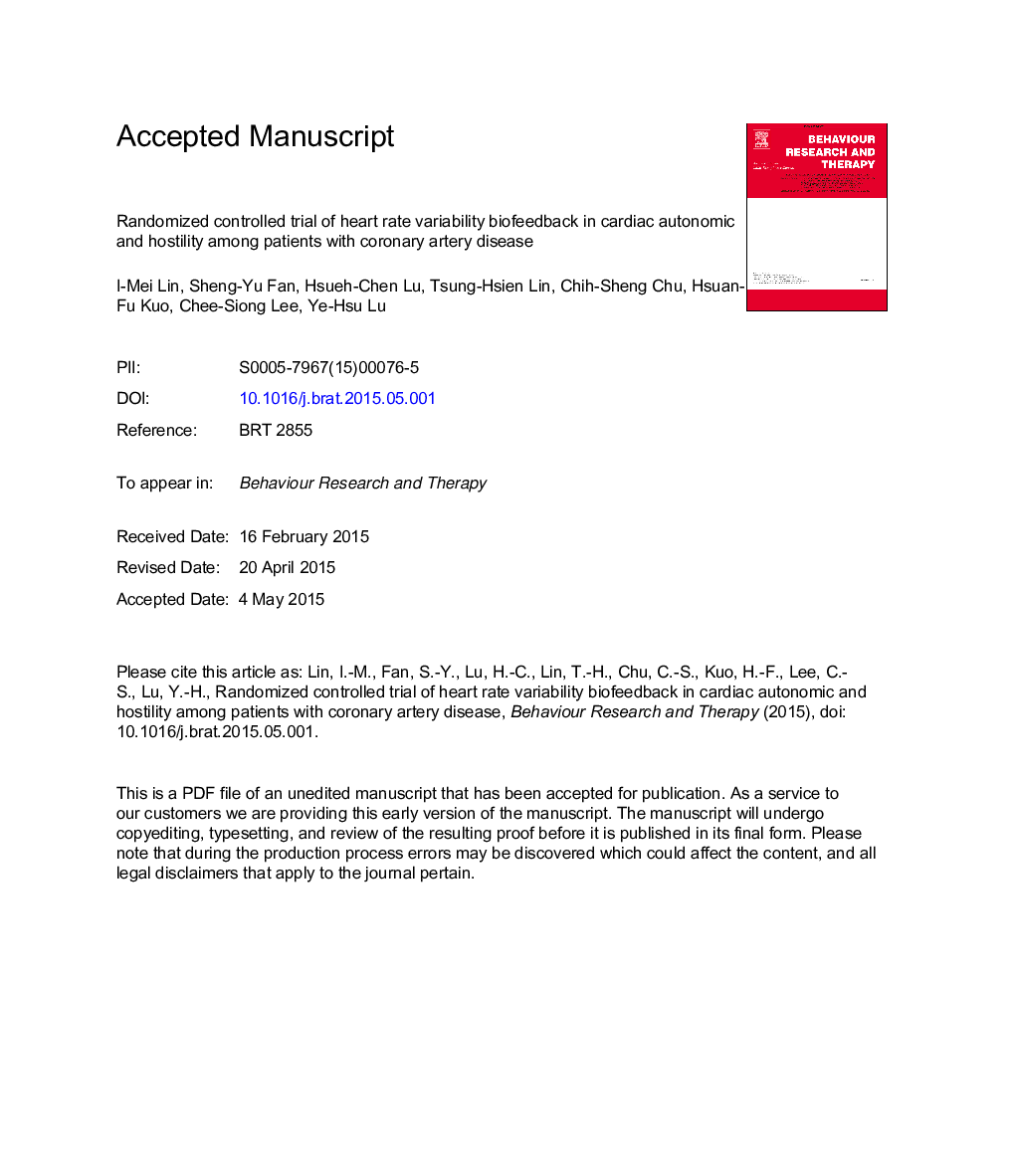| Article ID | Journal | Published Year | Pages | File Type |
|---|---|---|---|---|
| 7262338 | Behaviour Research and Therapy | 2015 | 39 Pages |
Abstract
Hostility is a psychosocial risk factor that may decrease heart rate variability (HRV) in coronary artery disease (CAD) through cardiac autonomic imbalance. Heart rate variability biofeedback (HRV-BF) increases HRV indices and baroreflex gain. This study examines the effectiveness of HRV-BF in restoring cardiac autonomic balance and decreasing hostility among patients with CAD. One hundred and fifty-four patients with CAD were assigned randomly to receive 6 weeks of HRV-BF, in addition to the standard medical care received by the wait-list control (WLC) group. A 5-min electrocardiogram, blood pressure, and hostility were assessed pre-intervention, post-intervention, and at 1-month follow-up. The standard deviation of normal-to-normal intervals (SDNN), low frequency (LF), and log LF at post-intervention was significantly higher than that at pre-intervention in the HRV-BF group. Baseline log LF was significantly higher post-intervention and at follow-up after HRV-BF training than at pre-intervention. The treatment curve of log LF pre-session increased significantly after session 2, which was maintained to post-intervention. Expressive hostility, suppressive hostility, and hostility total score at post-intervention and one-month follow-up after HRV-BF were significantly lower than at pre-intervention. This study showed increased HRV and decreased expressive and suppressive hostility behavior in patients with CAD following HRV-BF.
Keywords
Related Topics
Health Sciences
Medicine and Dentistry
Psychiatry and Mental Health
Authors
I-Mei Lin, Sheng-Yu Fan, Hsueh-Chen Lu, Tsung-Hsien Lin, Chih-Sheng Chu, Hsuan-Fu Kuo, Chee-Siong Lee, Ye-Hsu Lu,
